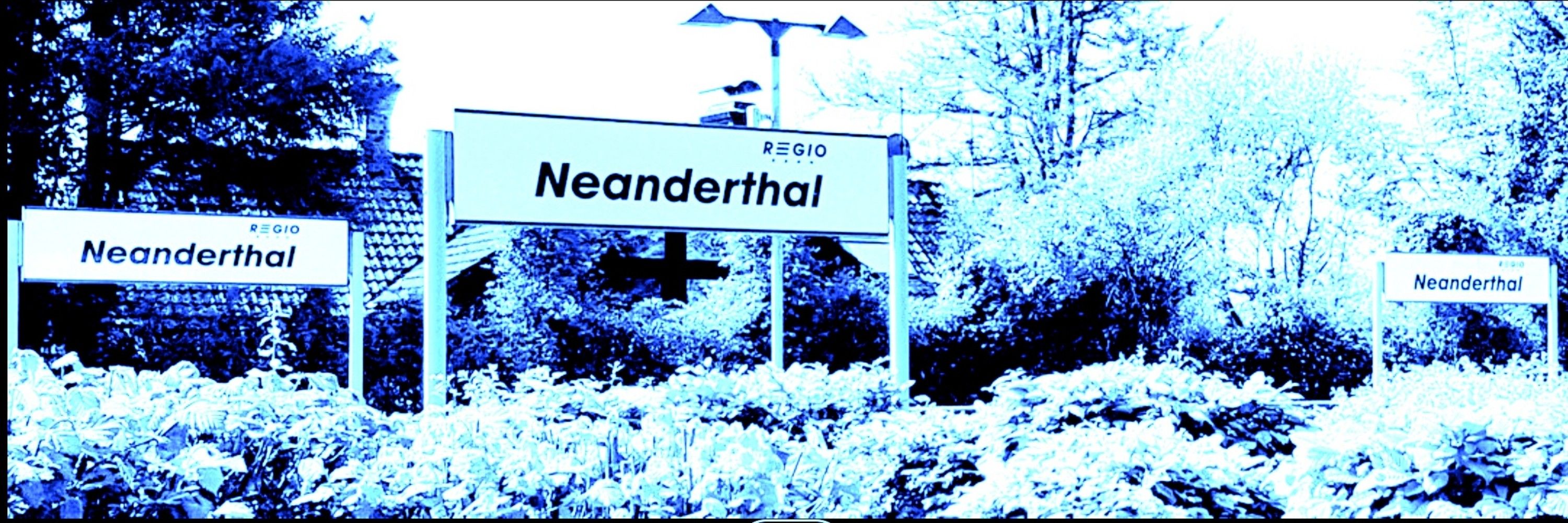
📚 KINDRED: Neanderthal Life, Love, Death & Art
🖋️ MATRIARCHA: Prehistory Re-imagined
🏛️ Honorary Researcher U. Cambridge & U. Liverpool
1/4 @trowelblazers.bsky.social
Rep: PEW Literary
Here's the @trowelblazers.bsky.social article on Mary Buckland
trowelblazers.com/2014/05/09/m...

Here's the @trowelblazers.bsky.social article on Mary Buckland
trowelblazers.com/2014/05/09/m...
📺: Mega Man Xtreme, Capcom, 2000 (GBC)

Interesting to consider in terms of potential interaction or not between East Eurasian hominins & #Neanderthals, out at their eastern-most range (which is often assumed to be Denisova based on skeletal remains, but need not be...)
Source: doi.org/10.1038/s414... #FossilFriday

Interesting to consider in terms of potential interaction or not between East Eurasian hominins & #Neanderthals, out at their eastern-most range (which is often assumed to be Denisova based on skeletal remains, but need not be...)






Morphométrie dentaire et variabilité des #Néandertaliens récents des grottes d’Arcy-sur-Cure (Yonne, France)

And all of it could be delivered by humans, helping humans.
*see what I did there? I got ChatGPT to write that**.
** nope.
And all of it could be delivered by humans, helping humans.
Inventive themed galleries, including a close encounter with Pontnewydd #Neanderthals of 270,000 years ago.




Inventive themed galleries, including a close encounter with Pontnewydd #Neanderthals of 270,000 years ago.
Lesson? If you're putting out research to media, give them pics.
And consider a "no #AI" requirement, whether images or text, in media coverage of your work...
*What the hell, Science Daily?*
Garbage. ⚒️🧪
Lesson? If you're putting out research to media, give them pics.
And consider a "no #AI" requirement, whether images or text, in media coverage of your work...
Here for @henebtwa.bsky.social launch event, speaking about why #archaeology matters.
(Love that there's a giant torc here at the centre of Welsh political power!)




Here for @henebtwa.bsky.social launch event, speaking about why #archaeology matters.
(Love that there's a giant torc here at the centre of Welsh political power!)
Lesson? If you're putting out research to media, give them pics.
And consider a "no #AI" requirement, whether images or text, in media coverage of your work...
*What the hell, Science Daily?*
Garbage. ⚒️🧪
Lesson? If you're putting out research to media, give them pics.
And consider a "no #AI" requirement, whether images or text, in media coverage of your work...

Then light the torch and form the march, and sound the rolling drum."
Happy #UpHellyAa!
19.30pm (GMT). Follow the livestream link 👇 from 18:45. The weather forecast isn't brilliant for this evening's festivities, so it should be interesting!

(4 word answer not guaranteed)

(4 word answer not guaranteed)
(warning, link has plot spoilers...)
festival.sundance.org/program/film...
(warning, link has plot spoilers...)
festival.sundance.org/program/film...
As always, all of our talks will be streamed online and are open to anyone. Our first talk will be on the 12.02.26. More details will be released closer to the time.
We hope to see you there!

I guess this confused it because – say it all together – gen-AI is NOT ACTUALLY INTELLIGENT 🙄
"over drinks in a London pub in 2013".
This never happened (we only all met IRL years after forming) 🙄
plus, it makes up criticism of our work...
p.s. not giving it traffic by linking
I guess this confused it because – say it all together – gen-AI is NOT ACTUALLY INTELLIGENT 🙄
I'm a writer, but I also ♥️ creative collaborations, and do a lot of consultancy.
This film #InTheBlinkOfAnEye, which I advised on a while ago, is finally coming out and has a showing at Sundance: a connections-through-time story which includes #Neanderthals...
Out Hulu next month then Disney+


I'm a writer, but I also ♥️ creative collaborations, and do a lot of consultancy.
This film #InTheBlinkOfAnEye, which I advised on a while ago, is finally coming out and has a showing at Sundance: a connections-through-time story which includes #Neanderthals...
Out Hulu next month then Disney+


Why don't we do this more in #archaeology? Invite colleagues & public onto live excavation /lab study "visits"?
Why don't we do this more in #archaeology? Invite colleagues & public onto live excavation /lab study "visits"?
vs.
"I bought an apocalypse-escape vessel"
🙄
www.theguardian.com/lifeandstyle...

vs.
"I bought an apocalypse-escape vessel"
🙄
www.theguardian.com/lifeandstyle...


